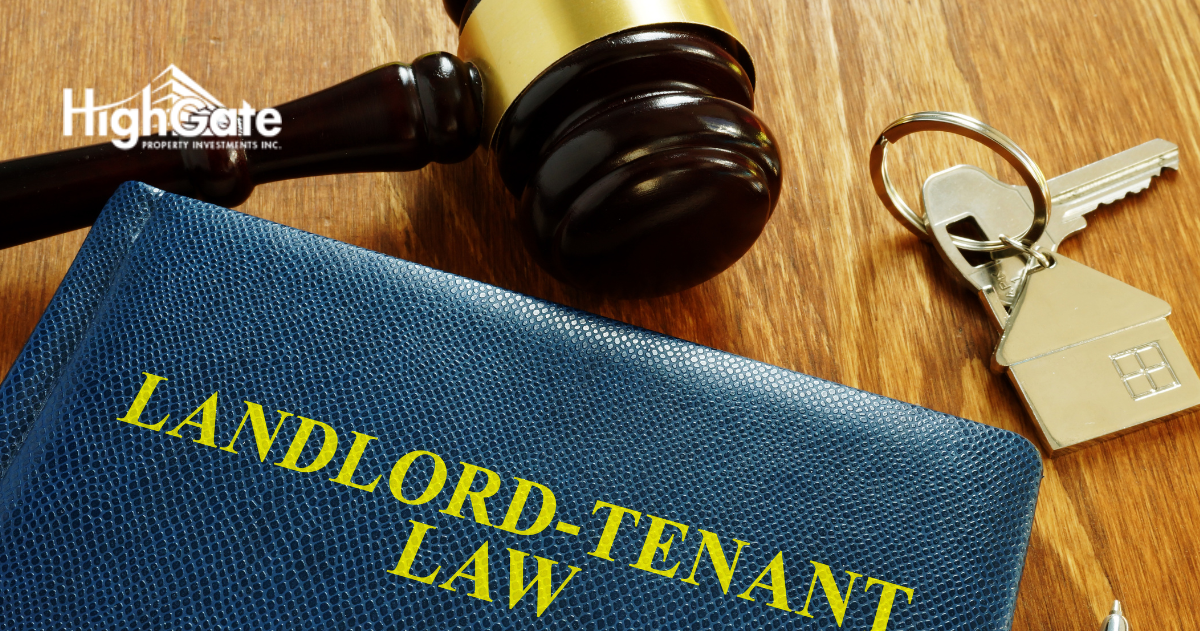What Happens After a Successful Landlord and Tenant Board Eviction Hearing?
In some circumstances, you may have to have a tenant evicted due to non-payment of rent, excessive damages, illegal activities in the unit, or any other reason. Typically, evictions happen for non-payment of rent. It is reasonable to accept that an evicted tenant will not be compliant with the eviction order, so you need to be prepared for what to do after the hearing.
It can be frustrating for landlords to wait more time to evict a tenant who hasn’t been paying rent, especially since they probably waited about 5-6 months for the Landlord and Tenant Board (LTB) hearing. But there will be many further delays and actions to take post-hearing.
Wait for the eviction order
Once the LTB has decided in your favour, you will have to wait up to 60 days for the written order to be issued. This order will go to both you and the tenant. From there, the tenant has the right to appeal the eviction order within 30 days of its issue date. “Professional” tenants who game the system typically wait for this 30-day period to be up before filing an appeal, which will grant them a short reprieve, much shorter than the wait time for the initial hearing. Regular tenants who are just down on their luck typically will not do this unless they are having issues securing another place to live.
Request a sheriff on the eviction date if needed
Unfortunately, you cannot request a sheriff to evict your tenants in advance of the date specified on the eviction order. You have to wait until the actual eviction date to start the process. Depending on where you are, scheduling a sheriff to come out can take 2-3 weeks so make sure you have all of the information you need to contact the sheriff and get the wheels in motion right away.
The best practice is to show up at the property yourself on the eviction date (and check times – you may not be able to show up until 11:59pm or something like that) and demand that the tenants leave. If they refuse, you’ll need the sheriff. If you are afraid the tenants may be violent, you can choose to simply apply to the sheriff’s office instead of going to the unit yourself first.
It is important throughout the entire process to remain calm and businesslike, no matter what the tenants do or say. If they refuse to leave, simply leave yourself and call the sheriff’s office to arrange for a sheriff-escorted eviction.
After the tenants leave
Once the tenants leave, change the locks immediately. If the eviction is not sheriff-escorted and occurs on the eviction date itself, you are required to keep the tenant’s belongings safe for 72 hours after the eviction – this does NOT mean you need to give the tenants continued access to the property. Typically, this means keeping their belongings in part of the property they are renting, and making yourself or another party with the keys available for them to pick up their things for that 72-hour period within reasonable business hours.
After that period, you can do what you like with their belongings. Technically, they are now yours. Keeping their old furniture in the property is not advisable as it may have bedbugs and be stained or dirty. You will have to arrange to remove old belongings and will be responsible for dump fees, movers, or any other costs this may involve.
Unfortunately, you can only claim actual damages to the unit rather than these costs against the final deposit, which was probably applied to the rent arrears by the LTB. If it wasn’t applied against arrears, you will need to return this deposit in a timely manner, but this is very rare.
Whatever you do, don’t start advertising the unit for rent until the tenant is out and the locks are changed. You don’t know until the tenant leaves what shape the property is in, and the process of cleaning it and fixing major and minor items will take some time.
File in small claims court for your rent arrears award and hand it to collections
Once you have your LTB order in hand, you can go directly to small claims court and file for your order to collect the outstanding amount of rent arrears. You can do this on the day that you get your LTB order, you do not have to wait until the tenant has left the unit. The process is fairly cut and dried and you will not have to wait long to get your order from small claims court. You will, however, have to wait to get your money.
The easiest way to manage this is to hand the order to a collection agency in order to enforce it. There are many nuances, timelines, and other things to consider when collecting debts that you won’t know about, and you can even take actions unwittingly that may hurt your chances of getting paid. For example, if you negotiate with the tenant to pay a certain amount, they will simply just not pay you yet again.
A collection agency will know exactly what to do, and are well worth their fees, which you typically do not pay until the debt is collected. Be prepared to settle the claim for less than the full amount if necessary; the tenant will very likely not have the means to pay the full amount on judgment and will need to have their wages garnished for you to see your funds.
Avoiding having to evict a tenant in the first place
If you want to avoid this extremely cumbersome situation in the first place, rigorous tenant screening is the only way to go. Check OpenRoom to see if the tenant has been evicted before and only accept a credit check that you do yourself which shows an extremely good credit history. Don’t leave any room in the process for the tenant to self-report anything you can get yourself, since bad actors can easily falsify employment, references, and other documentation.
Consider hiring a property management company since they will know all of the legal ins and outs of tenant screening, and will make absolutely sure that only the right people rent your property. At Highgate, we keep the whole process affordable so small landlords can easily use our services. Having us on hand to answer your questions, screen tenants, and perform maintenance tasks gives you peace of mind and maximizes the value of your investment property. Plus, if there ever is a bad situation with a tenant, we can handle it and greatly reduce your stress levels – and the chances of having to go through the eviction process.





